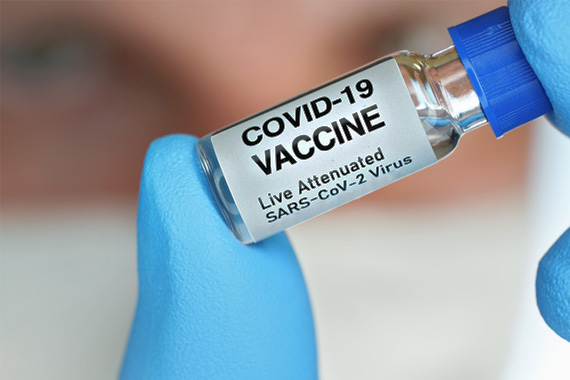By Suzanne Greenwood, Executive Director

There are two significant changes coming this year which will affect community pharmacies and their patients.
The first is the arrival of COVID-19 vaccination, which will see community pharmacists join other health professionals in providing the workforce to conduct this significant and vital public health task.
With such a significant task ahead of us to immunise as many Australians who want to receive the vaccine in 2021 as possible – we literally need all trained immunisers to get the job done, and this has been recognised by Health Minister Greg Hunt. We thank the Minister for the support and confidence he has shown in community pharmacy.
With over 3 million Australians receiving their influenza vaccination from pharmacies in 2020 – a number increasing each and every year - there is a clear endorsement from the public of pharmacies being able to deliver immunisation services.
Trained community pharmacist immunisers are standing ready to make a significant contribution to the health workforce charged with administering these COVID vaccines to all Australians who wish to be vaccinated.
Community pharmacists will be vaccinating patients from Phase 2a of the national vaccine roll-out strategy, giving millions of Australians the option of having their vaccination at their local pharmacy.
Pharmacists and pharmacy assistants will be vaccinated as part of Phase 1b, recognising their essential role as healthcare workers, and standing them in good stead to advise and assist patients seeking information on the vaccine.
It’s all about trust – the patients’ trust in their local pharmacy, and the health authorities’ trust in the professional skill and knowledge of community pharmacists.
Active Ingredient Prescribing
Another big change on the horizon is Active Ingredient Prescribing. From 1 February 2021, the Australian Government is mandating that prescribers must include the active ingredient names when preparing prescriptions for Pharmaceutical Benefits Scheme (PBS) and Repatriation PBS (RPBS) medicines.
This will mean that from February onwards, patients will be provided with prescriptions based on the active ingredient, rather than the brand name of the medication.
There are some exceptions to this arrangement, which include:
- Non-PBS/RPBS prescriptions, though the principles still apply
- Handwritten prescriptions
- Paper-based medication charts in the residential aged care sector
- Prescriptions for medicines with four or more active ingredients
- Where inclusion of active ingredients has been deemed impractical
The Department of Health is working with prescribing and dispensing software providers as well as prescriber and pharmacy groups to ensure all are ready for the change. As non-compliant prescriptions are not eligible to be claimed as pharmaceutical benefits, the Department has agreed with the Guild to implement a grace period of six months to avoid any negative impact on Australian health consumers as part of the transition.
The Pharmacy Guild will monitor the transition period and will seek an extension if required, to ensure minimal disruption of patient care.
As the health professionals that patients turn to when changes like this happen, pharmacists will continue to support patients with these changes, helping them out with any confusion, concerns or prescription-related issues. The Guild is inviting pharmacists and consumers to report their experiences under the new system via eprescriptions@guild.org.au.
Guild members can access more information from the Active Ingredient Prescribing area of the Guild website.


